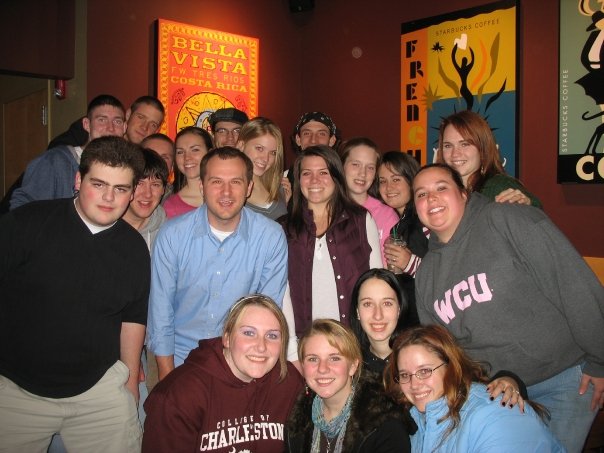
Cleaning is cathartic, but how do you throw out a profession?
For eight years, I’ve kept a half dozen copy paper boxes shut in a closet in our basement. These boxes were full of file folders that were, in turn, filled end to end with paper, thousands and thousands of pages that were the sum total of my brief career as a high school English teacher.
Pop psychologists sometimes talk about the baggage we carry around with us as we go from place to place and point to point in our lives. It makes for a nice metaphor: this notion that we are often weighed down by reminders of our previous experiences, and that cumulatively, these experiences can inhibit our way to make any kind of progress.
The good news is that the yards of copy paper in my basement never impeded my ability to leave teaching and find other work–that turned out just fine. And yet, I’ve lived with them in a sort of hidden proximity ever since I left my classroom in 2007. I cannot remember why I felt compelled to save them.
Or, for that matter, why I brought them with me when we moved or why they’ve sat undisturbed in our basement. Truth be told, they were in a seldom-accessed closet, and we aren’t lacking for storage. Out of sight, out of mind.
On a couple of occasions I’d peer in at them, lift the lid off one box or another and peek at their contents. It was easy to get pulled into the file folders. It was a short history of when I was Mr. Hogan*: handouts I’d composed more than a decade ago. Notes I’d scribbled on top of a poem printed on an overhead slide. The syllabus for my first AP Language class.
At this point in my life, it seems almost alien to look back at these things anymore. The idea that I once taught high school English feels foreign. The hundreds of thousands of words in these boxes constitute another man and another life. It’s me, but it isn’t me anymore.
Within seconds, though, I can see the idealism that filled my teacher’s heart.
I see it in the papers I kept and the ways I’d sneak little jokes into test questions. The young teacher I was taught earnestly. I eschewed pretense even though I cherished the formal parts of my profession.
I also wasn’t quite as good as I remembered–a finding upheld when I came across another box filled with notes and papers from college. Many were embarrassing to read. They were ill-formed, poorly structured, and far too confident that an aware, active writer’s voice could somehow conceal a thin veil of actual understanding.
And I seem so outdated. It might not be fair to judge a turn-of-the-century college student and teacher through the lens that twenty-some years of progress sharpens into focus. I am sorry to see how white and Euro-centric my syllabi were. My own infatuation with writers who looked like me shaped too much of what I assigned and how I implored my students to write.
Not that there weren’t flashes of inspiration here and there. When my attention was unquestionably devoted, my work as a student or as a teacher could be worthwhile. I once wrote a lengthy memo to the director of my university’s writing center (where I worked in college) discussing ways we could creatively advertise its tutoring services and how I would like to redevelop the website to promote online writing resources. It was probably one of the most cogent things I wrote in college. It’s easy to see the current James in its sentences.
I am probably too sentimental when it comes to family history–something there is so fulfilling about tracing a lineage from one point to another, the step-stones of artifacts from the past. I have a copy of a journal kept by someone in my paternal grandfather’s family from the late 1800s. I have a handful of my own grandfather’s musings, and I keep the typewriter he composed them on in my own office. There’s a reason I keep this journal–and print it out and have it bound every decade. I like the idea of keeping a running commentary around for posterity’s sake.
Everyone needs a good editor, though. It was time for all those years of college notes and teaching handouts to go. They were an unflinching chronology from a point in my life that I no longer need to hold onto nor keep around for such a micro-level analysis. I took the opportunity to read through many of the files, and indeed, I saved a few inches of paper for the future. But the rest found its way into the back of my car, and on a rainy Saturday morning, I tossed box after box into the recycling bin at the landfill.
I wondered how it would make me feel as I drove away–whether I would have last-second remorse, or whether I would grieve such a visceral closure to that part of my life. But I didn’t.
I suspect that’s because I’ve long since moved on in my heart and my mind. I live another life, a very different one. I wasn’t sad to let go of the myriad records of that part of my life. Instead, I was grateful to see how far I’ve come in the years that followed.
*AUTHOR’S NOTE: It’s funny. I was rarely “Mr. Hogan” when I was a teacher–I quickly became just “Hogan” or even “Hoagie.” When I went to work at Davidson, I ended up as “J-Ho.” Now I’m back to Mr. Hogan, even though I insist it’s James. And hey, maybe in the next couple of years it’ll be Dr. Hogan.


Leave a Reply